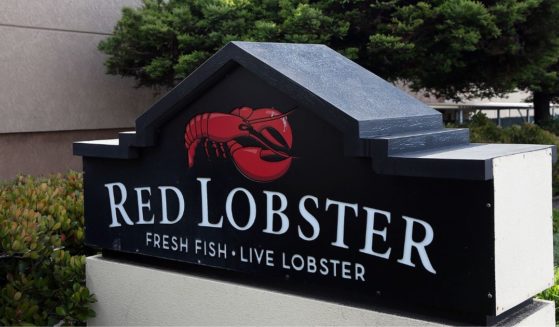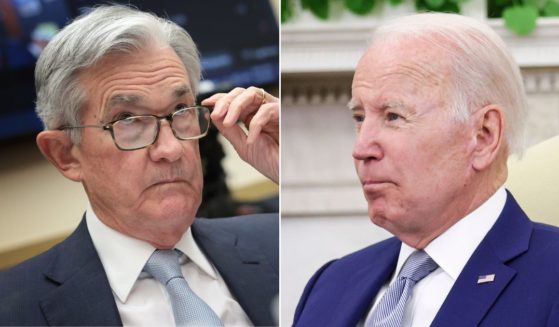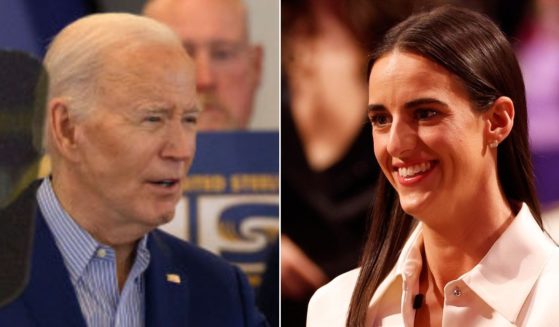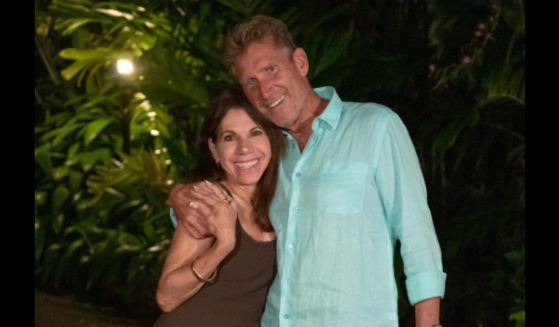Sarah Sanders Smacks Down Paul Krugman, Who Predicted 'Great Recession' Under Trump
Paul Krugman is kind of like the Roland Burton Hedley III of popular economics reporting.
Hedley, for those of you who don’t have time for “Doonesbury” and its inveterate liberalism, is a reporter in the comic strip who constantly gets everything wrong in the pursuit of a narrative. In one early cartoon, one of the characters is able to convince Hedley — doing a story on the supposed decadence of 1970s college students living on a commune — that a lilac bush is their marijuana plant.
Krugman, a Nobel-winning liberal economist, may have actually earned his Nobel Prize (I’m told his academic work is far better than what he writes for popular consumption, and for the sake of academia and the Nobel Committee, I certainly hope so). But when it comes to getting economic trends right in his journalistic work, he’s so appallingly bad you can pretty much take whatever he writes and just assume the opposite is true.
I mean, what can you really say about a person who wrote in 2002 that “Alan Greenspan needs to create a housing bubble to replace the Nasdaq bubble,” only to later excuse himself by claiming in 2009 that “(i)t wasn’t a piece of policy advocacy, it was just economic analysis.”
Well, I suppose you can say plenty if you’re White House press secretary Sarah Huckabee Sanders and Donald Trump is nearing his 500th day in office. See, if you believed Krugman, we should all now be living in a living Walker Evans photograph whilst rending our MAGA hats and gnashing our teeth at ever having made the grievous error of electing Donald Trump.
Let me explain. At 12:42 a.m. on Nov. 9, 2016 — as it became clear Donald Trump was to be elected president — Krugman wrote one of his most infamously wrong columns that didn’t involve advising the creation of a housing bubble. He predicted that we were headed for what amounted to perpetual recession.
“Frankly, I find it hard to care much, even though this is my specialty. The disaster for America and the world has so many aspects that the economic ramifications are way down my list of things to fear,” Krugman wrote, having clearly seen and deeply, impartially scrutinized all of the possible economic consequences of a Trump presidency in 90 minutes after which it became clear Hillary wouldn’t be hanging out in the Oval Office for the next four years. “Still, I guess people want an answer: If the question is when markets will recover, a first-pass answer is never.
“Under any circumstances, putting an irresponsible, ignorant man who takes his advice from all the wrong people in charge of the nation with the world’s most important economy would be very bad news. What makes it especially bad right now, however, is the fundamentally fragile state much of the world is still in, eight years after the great financial crisis,” Krugman wrote. He ended the short piece with his famous prediction that “we are very probably looking at a global recession, with no end in sight.”
Markets will never recover. A global recession with no end in sight. Horrifying. Terrifying. This sounds like it will make the Great Depression look like a minor dip in the Dow. Sell, sell, sell.
And the markets did, for a little while. And then a magical thing happened: Investors actually came to their senses and realized that in spite of the way things were being covered by the shellshocked anchors manning election night desks at 2:30 a.m., a Trump presidency wasn’t the end of the world. The economy was sound.
Fast forward a bit — almost 500 days, to be exact — and here’s what Neil Irwin wrote on June 1 in the same paper in which Krugman originally made his dire prediction:
“The real question in analyzing the May jobs numbers released Friday is whether there are enough synonyms for ‘good’ in an online thesaurus to describe them adequately.
“So, for example, ‘splendid’ and ‘excellent’ fit the bill,” Irwin wrote. “Those are the kinds of terms that are appropriate when the United States economy adds 223,000 jobs in a month, despite being nine years into an expansion, and when the unemployment rate falls to 3.8 percent, a new 18-year low.
“‘Salubrious,’ ‘salutary’ and ‘healthy’ work as words to describe the 0.3 percent rise in average hourly earnings, which are up 2.7 percent over the last year — a nice improvement but also not the kind of sharp increase that might lead the Federal Reserve to rethink its cautious path of interest rate increases,” he continued.
“And a broader definition of unemployment, which includes people who have given up looking for a job out of frustration, fell to 7.6 percent. The jobless rate for African-Americans fell to 5.9 percent, the lowest on record, which we would count as ‘great.’”
For whatever reason, Krugman didn’t share a byline on this. But, hey — what better occasion for the White House press secretary to remind the Nobel winner of the febrile column he pounded out during the early hours of Nov. 9, 2016?
We’ve come a long way since Paul Krugman, writing in the New York Times after the election, said the Trump presidency would bring a “global recession, with no end in sight”…https://t.co/IbZrhK4vZB
— Kayleigh McEnany 45 Archived (@PressSec45) June 3, 2018
The greatest revenge, they say, is living well. Or, in this case, managing the economy well. Apparently, an “irresponsible, ignorant man who takes his advice from all the wrong people in charge of the nation with the world’s most important economy” hasn’t worked out so badly for us. And Sarah Huckabee Sanders decided to remind Krugman of this, all in less than 280 characters. As the kids like to say, mic drop.
Krugman, predictably, will not be issuing much of a correction. Instead, like many on the left, he’s moved from presaging economic and social disaster (which he’s technically qualified to do, no matter how frequently wrong he is) to diagnosing the behavioral character flaws of not only President Trump but everyone associated with the GOP (which I don’t think anyone is technically qualified to do, much less Paul Krugman).
“The sad content of modern Republican character is a symptom of the corruption and hypocrisy that has afflicted half of our body politic — a sickness of the soul that manifests itself in personal behavior as well as policy,” Krugman wrote in yet another now-infamous February column.
“I’m pretty sure that in this case the personal is, ultimately, political. The modern G.O.P. is, to an extent never before seen in American history, a party built around bad faith, around pretending that its concerns and goals are very different from what they really are. Flag-waving claims of patriotism, pious invocations of morality, stern warnings about fiscal probity are all cover stories for an underlying agenda mainly concerned with making plutocrats even richer.”
Ah yes. When you can’t be right about the Trump administration making everyone much poorer, claim that it’s “making plutocrats even richer.” Attack Trump for threatening tariffs, even when you supported enacting those tariffs under Obama.
And by all means, attack the character of modern conservatives, Mr. Krugman. Given your Hedley-esque track record, I — and everyone else who supports the Republican Party — should probably consider your ad hominem rant a compliment. In fact, I’d be worried and insulted if you decided to say anything else.
Truth and Accuracy
We are committed to truth and accuracy in all of our journalism. Read our editorial standards.












